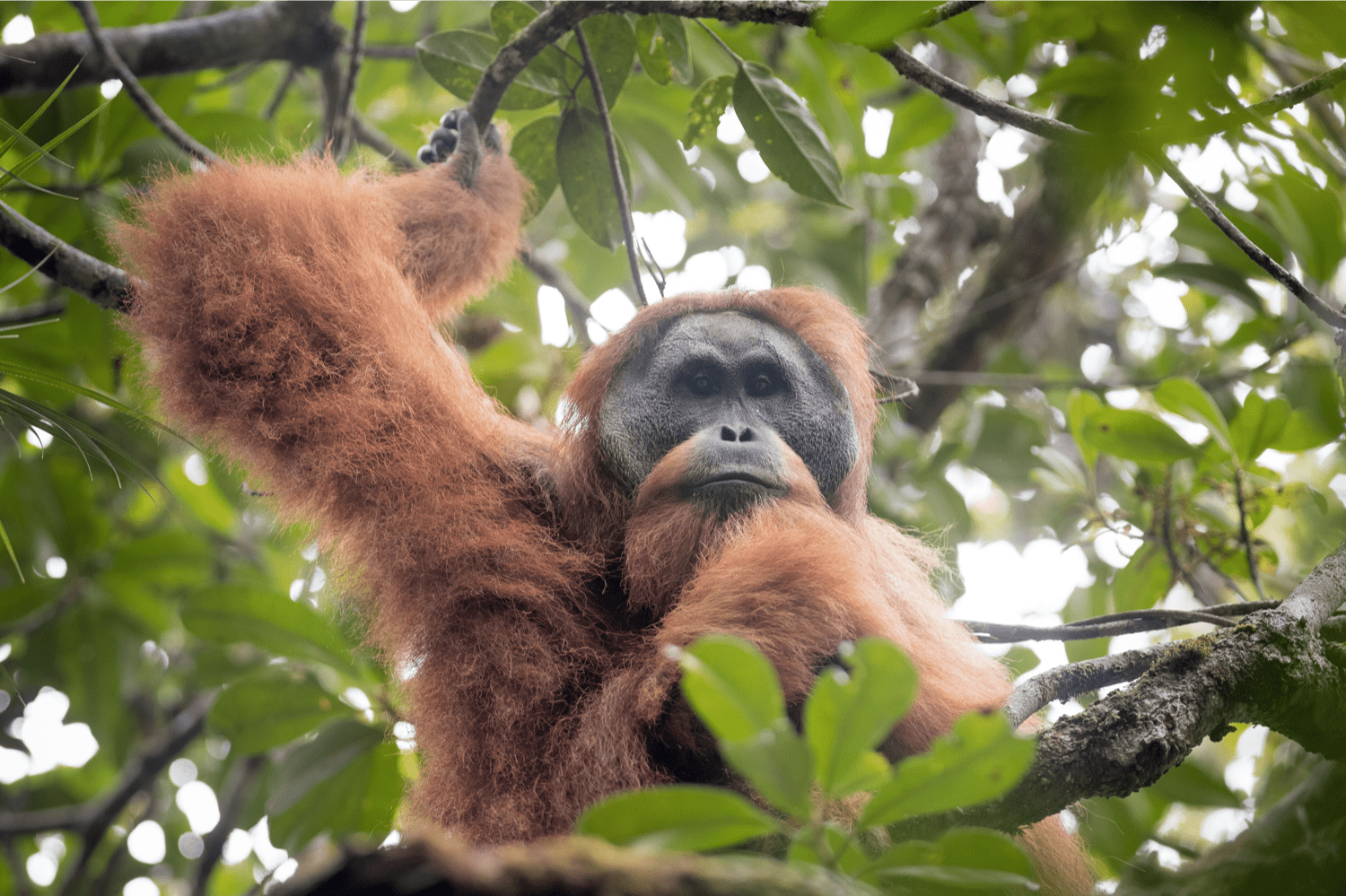
Dam Threatening Extinction of Tapanuli Orangutans Delayed at Least Three Years
The world’s rarest and most recently discovered great ape species received good news when North Sumatra Hydro Energy requested a three-year delay in the construction of the Batang Toru dam project in North Sumatra. The project came under intense scrutiny in Indonesia and around the world for threatening the survival of the Tapanuli orangutan, which was just identified in 2017, and has a population of fewer than 800.
The announcement of the delay follows Mighty Earth’s successful work with allies around the world to persuade the Bank of China to withdraw financing from the project.
In March of 2019, the Bank of China said it had “noted the concerns expressed by some environmental organizations” and promised to carefully review the project. Although Bank of China has not issued any further public statements, privately, representatives of the Bank have confirmed on numerous occasions that they will not fund the project.
Another partner in the hydroelectric scheme, the Indonesian state-owned utility company Perusahaan Listrik Negara (PLN), publicly confirmed in July of 2020 that the Bank of China has withdrawn its funding of the project.
Muhammad Ikhsan Asaad, who oversees the project for state-owned utility PLN, said the Batang Toru plant was supposed to start operating in 2022, based on the agreement between PLN and project developer PT North Sumatra Hydro Eenergy (NHSE).
“But it might be delayed to 2025, mainly because the drawdown from lender Bank of China is stopped due to environmental concerns as well as COVID-19,” he said.
The Bank of China’s withdrawal from the project follows that of other international lenders like the International Finance Corporation (part of the World Bank Group), Goldman Sachs, the Asian Development Bank, and the Asian Infrastructure Investment Bank, who have all distanced themselves from the pariah project.
PLN officially announced the delay at a hearing in June of 2020, citing environmental campaigning as a reason for the delay.
“It is true that this is hampered by protests from NGOs related to environmental issues, the presence of monkeys, and others there. We have received requests for a 3-year development delay due to COVID-19,” PLN’s Managing Director, Zulkifli Zaini, said at the DPR Commission VII Hearing Meeting, Jakarta, Wednesday (6/17/20).
The dam project raised concerns about the risks of splitting the Tapanuli orangutan population into groups too small to survive – in the face of an electricity gut that renders the project economically dubious – the COVID-19 pandemic has led to falling demand for electricity shooting further holes in the already dubious rationale for the venture.
Falling demand for electricity during the pandemic has also affected the development of the project, according to Hydropower Plant Developers Association (APPLTA) chairman Riza Husni. Riza said on Thursday that PLN’s move to cut the demand projection for electricity during the pandemic has impacted hydropower players’ plans to develop 5,000 MW worth of new plants in Indonesia. “All of them haven’t begun development,” said Riza.
With COVID-19 also leading to shortages of workers – especially those being brought in by the project’s Chinese contractor, Sinohydro – this halt in construction is an opportunity for the government of Indonesia to heed the calls of the International Union for Conservation of Nature to officially stop development, allowing an independent and objective assessment to be conducted on the risks of development in Tapanuli orangutan habitat.


